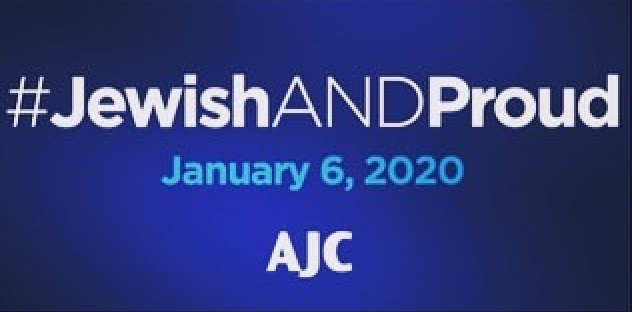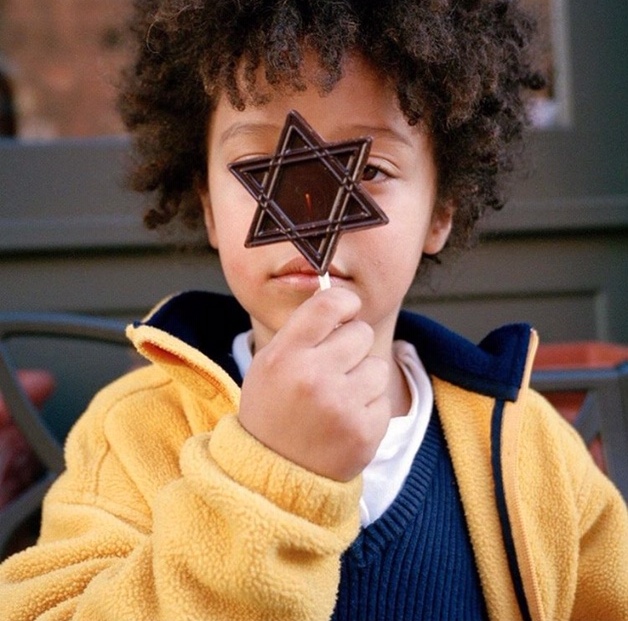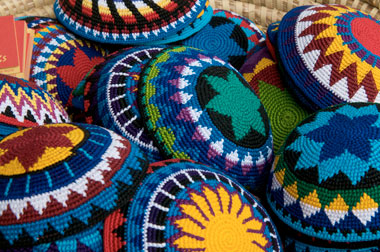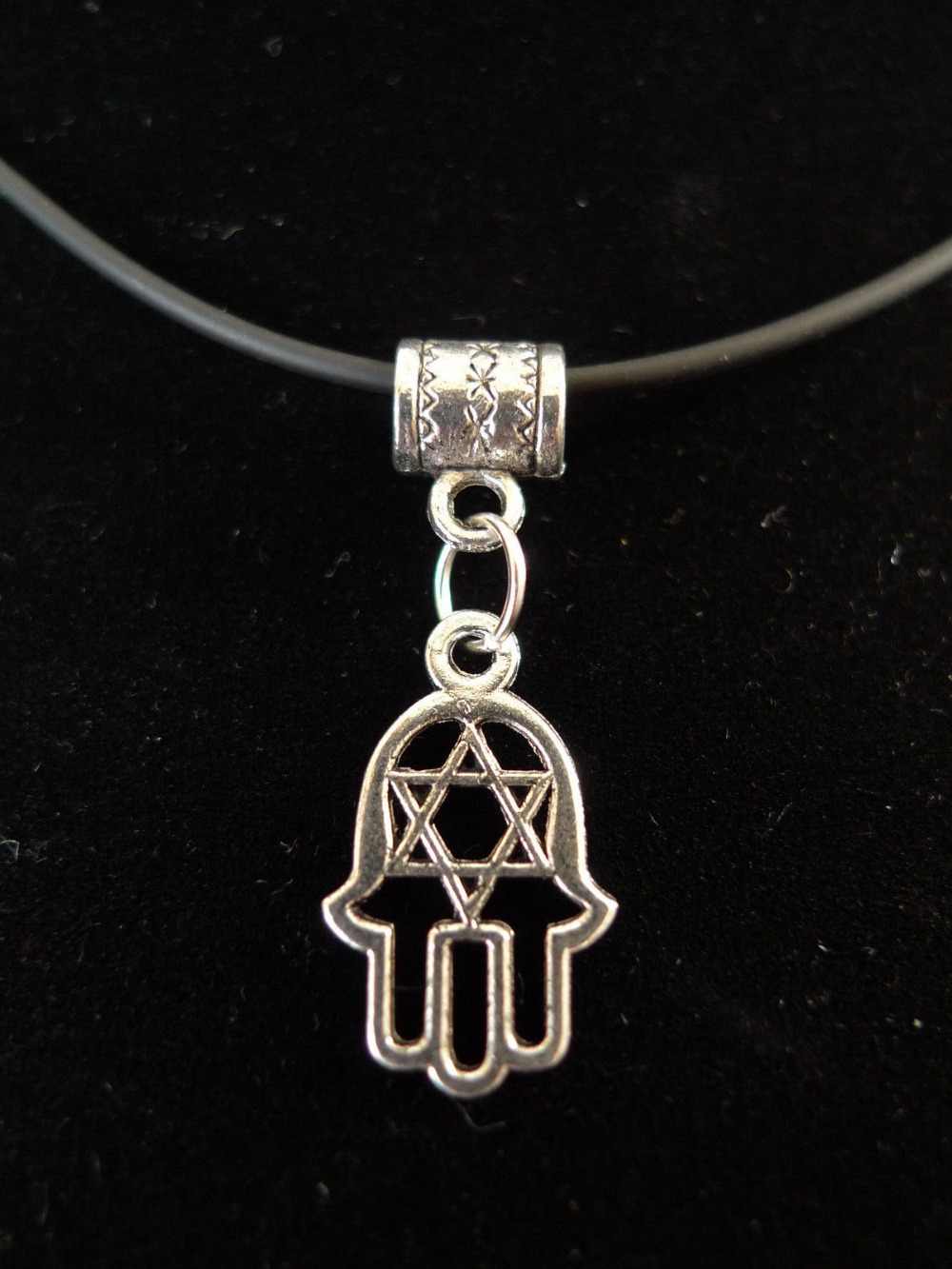Archive for January 2020
By Allison Barnes Jan 29, 2020
In America, especially now, it is both hard to be Black and hard to be a Jew. So imagine, if you will, what life is like for a Black Jew.
Even in what I would consider ideal circumstances, in liberal Northern California, where I live, navigating the Jewish world as a Person of Color has often been awkward, invasive, and othering. I routinely get strange comments made to me by other Jews who probably have no idea the impact of their words. And, while I don’t want to speak for all of us, I know that many other Jews of Color have unfortunately had the same experiences.
Before we toss this issue aside like a lost cause, I want to tell you that there is hope! Yes, I’ve had some bizarre conversations with other Jews about my ethnic/religious identity, but I also have faith that those negative conversational habits can be unlearned. Simply put, if folks stop saying certain offensive things to Jews of Color and replace those comments with something more positive, we can begin to build a more inclusive Jewish community.
Read on for my tips for what not to say to a Jew of Color — and what to say instead.
1. Don’t ask if they are Jewish.
If you are out in a Jewish setting (bar mitzvahs, seders, Hanukkah parties, and the like) and see someone who isn’t white, don’t go up to them and ask if they are Jewish. This question can be quickly interpreted as questioning someone’s right to be in a Jewish space. It makes them feel singled out, like you are suspicious of them.
Instead, introduce yourself! If you are at Jewish event and you see a POC who you don’t know, go up to them and say hi. It doesn’t matter if this person is Jewish or not — although if you’re at a Jewish event, I think it’s safe to assume everyone you interact with is Jewish. Let them correct you if need be. Try to genuinely meet a new person and make a new friend through polite small talk, like, “How do you know the bat mitzvah girl?” or “Have you tried the latkes?”
2. Don’t laugh.
This is a rough one. My whole life, one of the first reactions people had when they found out I was Jewish was to laugh. Whether out of surprise or discomfort, unless someone tells you they are a comedian, don’t laugh at someone’s identity. It is incredibly dehumanizing for someone to laugh at who you are. It is rude. Don’t do this.
Instead, if you find out a POC is Jewish and you feel like you must comment, say something simple like “oh cool” or “neat” and move on.
3. Don’t say, “Really? You don’t look Jewish!”
Is this from a movie I don’t know about? Is there an old-school comedy routine that relies on this line? The number of times I have heard this ridiculous phrase is immeasurable. If for no other reason, stop saying this to Jews of Color because it is not at all original; they have heard this thousands of times before! Beyond that, it shows a serious lack of both historical and religious understanding on the commenter’s part. There is no way to “look” Jewish, because Judaism is a religion that allows for anyone of any background to take part, rather than some sort of white-race subgroup. And, if we did want to discuss a “traditional” look for Jews, then we would be discussing the biblical Jews who also would not fit the Eastern European stereotype of a Jew that persists today.
Instead, don’t say anything at all. There is no positive way to say this.
4. Don’t ask if or when they converted.
First things first, a Jew of Color can be a Jew without having converted. Secondly, someone else’s conversion (or lack thereof) is none of your business. It is literally a Jewish law to not embarrass people about conversion and I’m fairly certain that asking a convert this question because of their race would fit into the “embarrassment” category. This question leaves any Jew of Color — whether Jewish by birth or by choice — feeling badly.
Instead, get to know the new people in your community. While there is never a supportive way to ask this question and it is none of your business, genuinely getting to know the people in your community shows that you support all Jews, regardless of background or Jewish path. Over time, those who have converted may share that with you, though they may not! Because again: Whether they converted or not really should not matter to you.
5. Don’t ask if they are Ethiopian or any other specific Jewish ethnic group.
Yes, Judaism has many interesting and distinct cultural groups, but that doesn’t mean that every Jew of Color you meet identifies as a member of one. I personally feel this comment is especially damaging to Black American Jews, whose African heritage is often obscured by the fact that their ancestors often arrived in the U.S. as enslaved people. Even in the age of 23andMe, this isn’t something worth asking someone.
Instead, get involved with communities of Color inside and outside of your Jewish community. The more comfortable you are with people of all backgrounds, the more supported Jews of Color in your community will feel! And perhaps you will meet JOC from your community who are out exploring other parts of their identity!
6. Don’t assume that they identify as half-Jewish, “Jew-ish,” or that only one of their parents is Jewish.
Jews of Color can have two Jewish parents, and Jews of Color can have parents who are both POC. They do not need to split themselves into fractional identities — they can be fully Jewish and fully Black, or whatever other cultures that make up who they are.
Instead, let this new person you are meeting tell you about themselves. These kinds of details about someone’s life are the things you learn about someone over time.
7. Don’t force them to recite their Jewish resume.
Questions about bar or bat mitzvahs, youth groups, and synagogue memberships absolutely have their positive place, but that place is not for when you first meet someone, especially a Jew of Color. When you ask these kinds of questions in an initial meeting, it comes off as if you’re quizzing someone in order to determine if they meet your Jewish “criteria.” It puts pressure on the Jew of Color to list all their Jewish involvement and accomplishments in order to appease your intrusiveness. It can feel like a really aggressive interview for a job you don’t even want.
Instead, save these types of questions for when they naturally come up in conversations as you get to know someone, rather than just out of your own curiosity. It really all comes down to getting to know Jews of Color in your community as you would a white Jew.
8. Don’t ask if they know (or worse: are related to) this other Jew of Color you know.
Jewish geography can be fun sometimes, but this version is extremely problematic. We do not all know each other. We are not all related. Do not ask this.
9. Don’t try to make a joke.
After all the quizzing, poking, and prodding, inevitably, white Jewish folks I am talking to try to end the conversation with a joke… about my identity. I’ve heard so many: “You are Blewish! Get it? Black and Jewish?” Or, “You can eat fried chicken on Hanukkah instead of latkes!” Or, as they point to my Afro: “Well, at least you have the same hair as us!” My identity is not a joke. I don’t think of it as a fun, silly fact about me — my identity is deeply important to me. These comments are degrading and, frankly, often racist.
Yes, I am sure it is difficult to close out a seriously awkward conversation you made us have about my race/ethnicity/religion. But Instead of shoving your foot further into your mouth by trying to make a joke, simply say: “It was so nice to meet you!”
Originally posted here: https://www.kveller.com/what-not-to-say-to-jews-of-color-and-what-to-say-instead/
Yom Huledet Sameach! Martin Luther King, Jr.
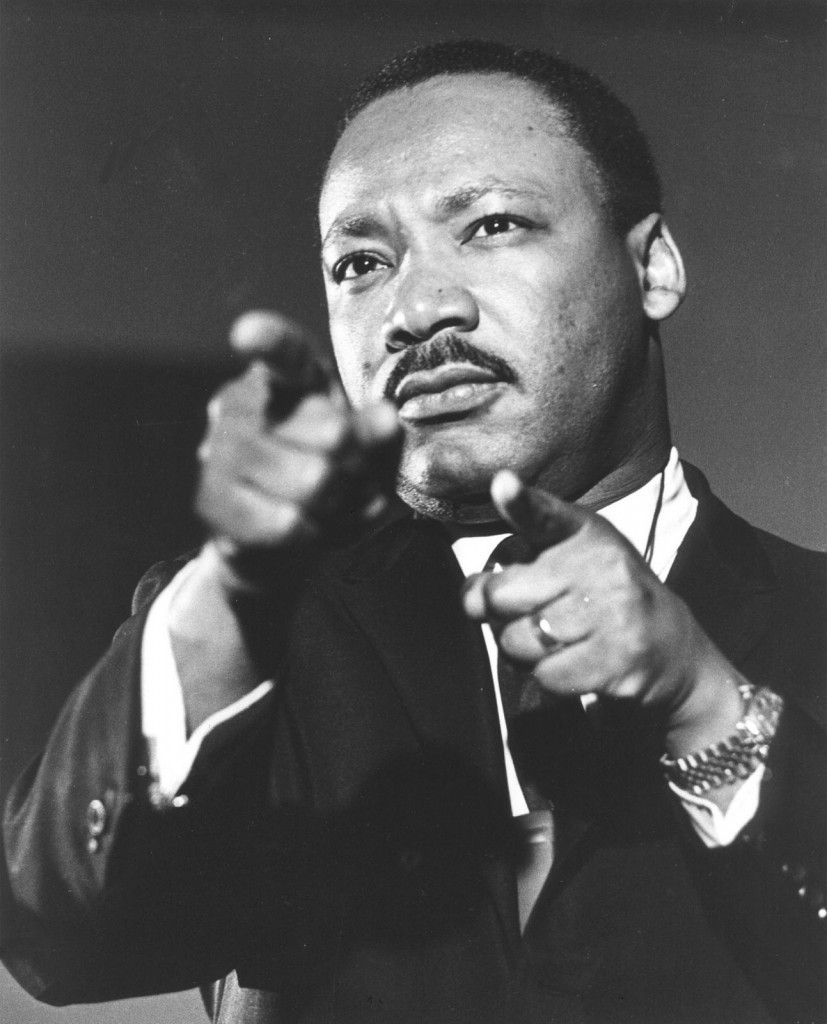 January 15, 1929 ~ April 4th, 1968
January 15, 1929 ~ April 4th, 1968
Martin Luther King Jr. Day (officially Birthday of Martin Luther King, Jr., and sometimes referred to as MLK Day) is an American federal holiday marking the birthday of Martin Luther King Jr. It is observed on the third Monday of January each year. King’s birthday is January 15. The holiday is similar to holidays set under the Uniform Monday Holiday Act. The earliest Monday for this holiday is January 15 and the latest is January 21.
“I look to a day when people will not be judged by the color of their skin but by the content of their character.” ~Martin Luther King, Jr.
“Injustice anywhere is a threat to justice everywhere.”
~Martin Luther King, Jr.
“Change does not roll in on the wheels of inevitability, but comes through continuous struggle.” ~Martin Luther King, Jr.
Our goal is to create a beloved community and this will require a qualitative change in our souls as well as a quantitative change in our lives. ~ Dr. Martin Luther King Jr.
Excerpt from speech by Rabbi Richard G. Hirsch, Founding Director of the Religious Action Center of Reform Judaism (RAC) following the speech by Dr. King during the 1968 Selma demonstration:
“For the next 30 minutes, I offered three thoughts – the words of the Midrash. First, I said that Jewish tradition teaches us that when God created man, he created only one man. Why? So that no man would ever be able to say my father is better than your father.
Next, I shared my second thought that according to Jewish tradition, God created man using dust from the four corners of the earth. Why? So that no person would ever be able to say the place from which I come is better than the place from which you come.
Then, I delivered my third and final thought, that when God created man, he used every color of dust. Why? So that no man would ever be able to say the color of my skin is better than the color of your skin.” Original article HERE
“Nothing in all the world is more dangerous than sincere ignorance and conscientious stupidity.” ~Martin Luther King, Jr.
10 Tips Toward Racial & Cultural Sensitivity in the Jewish Community
1 ~ Reach out to other Jews across difference because you will find our commonalities exceed our differences by far.
2 ~ Do not assume that Jewish history and the current Jewish population is comprised most significantly of Jews of European culture ancestry.
3 ~ Consider that within the customs and traditions of the Jewish people, there is a great diversity of language, culture, custom and color. Be willing to reach for and stay connected to the diversity of the Jewish people.
4 ~ Do not assume that because a person has dark skin that they must be a convert. This is not necessarily true or fair to individuals that have been Jewish all of their lives.
5 ~ Learn to value the “inner” Jew in yourself so that you can better appreciate it in others.
6 ~ Get to know the customs and traditions of Jews from the Middle East and North Africa and welcome this knowledge as a necessary component of your Jewish education.
7 ~ If you find a person’s journey around difference to be inspiring, be it their color, background, abilities, culture, traditions, etc., try not to limit your praise of them to their being “inspiring”.Tell them what about them inspires you specifically.
8 ~ Remember that it’s o.k. to be curious, but to become fascinated with a person because of an aspect of their physicality ALONE, is to turn that person into an object in your regard. Make efforts to make your relationships with people who are different than you, more than skin deep.
9 ~ Keep in mind that Jews of Color have a lot to offer the Jewish community, both in experience and perspective and should be welcomed to participate in all levels of Jewish social interaction, including leadership.
10 ~ Remember that denial is not just a river in Egypt (smile), it can also be an obstacle toward finding lasting solutions. When we sit with the things inside us that make us the most uncomfortable, we often find deeper truth and growth on the other side. ~Courtesy of Ayecha: http://www.ayecha.org/
The Rev. Martin Luther King Jr. Memorial Forest
The Rev. Martin Luther King Jr. Memorial Forest was established by the Jewish National Fund (JNF) in 1976 with the ceremonial planting of 39 trees, symbolizing each year of Martin Luther King Jr.’s life. Below, Martin Luther King III plants a tree in the Martin Luther King Jr. Memorial Forest on Sept. 10, 1987, during his religious pilgrimage and study mission in Israel. The forest is located in Turan, near Nazareth. The Coretta Scott King Forest is located in Biriya Forest, Israel. Every year 100’s of trees are added to the forest during King’s birth month.
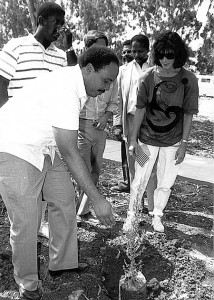 Rev. Robert A. Pruitt, pastor of African Methodist Episcopal Metropolitan Church in Washington, said during a ceremony at the forest, “Martin Luther King Jr. was great for his love of mankind, whether Christian or Jewish. How fitting that he be remembered by planting trees here. He may be buried, but his leaves are still blooming here in these hills, holy to both peoples [Americans and Israelis].”
Rev. Robert A. Pruitt, pastor of African Methodist Episcopal Metropolitan Church in Washington, said during a ceremony at the forest, “Martin Luther King Jr. was great for his love of mankind, whether Christian or Jewish. How fitting that he be remembered by planting trees here. He may be buried, but his leaves are still blooming here in these hills, holy to both peoples [Americans and Israelis].”
On Sunday, January 5, 2020 thousands of Jews and no-Jews marched across the Brooklyn Bridge in a show of cross-faith unity after a string of bloody anti-Semitic attacks in the region.
Chanting “No Hate, No Fear,” a crowd estimated at 25,000 from New York, New Jersey and beyond assembled at Foley Square in Lower Manhattan under heavy police presence.
𝗣𝗿𝗲𝗽𝗮𝗿𝗲𝗱 𝗥𝗲𝗺𝗮𝗿𝗸𝘀 𝗯𝘆 𝗠𝗮𝗡𝗶𝘀𝗵𝘁𝗮𝗻𝗮
𝗡𝗼 𝗛𝗮𝘁𝗲, 𝗡𝗼 𝗙𝗲𝗮𝗿 𝗝𝗲𝘄𝗶𝘀𝗵 𝗦𝗼𝗹𝗶𝗱𝗮𝗿𝗶𝘁𝘆 𝗠𝗮𝗿𝗰𝗵
𝗝𝗮𝗻𝘂𝗮𝗿𝘆 𝟱, 𝟮𝟬𝟮𝟬
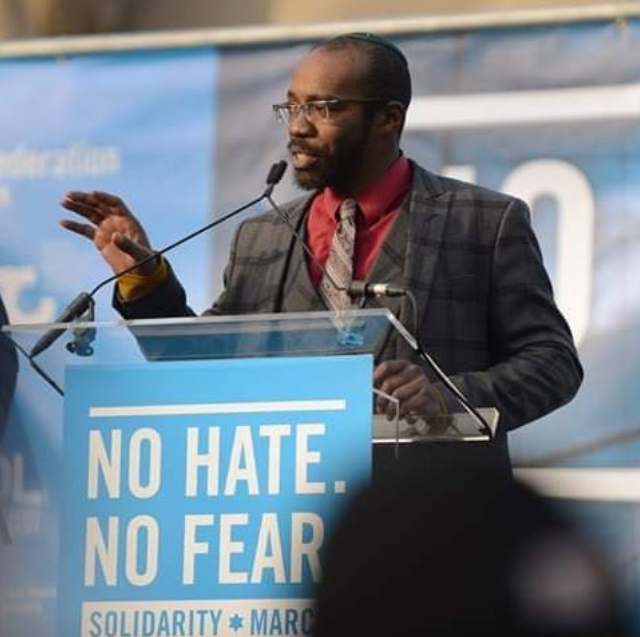
Rabbi Shais Rishon aka Manishtana
Text courtesy of Bend of the Arc:
My wife and I have a six year old who is far too smart for our own good. Once, when she was two, my wife and I got into an argument, as you do. It was one of those angry whisper arguments because we didn’t want to wake our daughter up in the next room. We went to bed angry, woke up the next day angry and not speaking to each other, but continued getting ready for our respective days.
As I’m brushing my teeth in the bathroom, who should come in but my 2 year old. I say morning, she doesn’t say anything, but she takes my hand and leads me out of the bathroom.
My daughter leads me into her room where my wife is getting my daughter’s things together for daycare. She bring me as physically close as possible to my wife, then she taps my wife’s leg. So there were are, the three of us, awkwardly staring at each other. My wife and I look at our daughter and ask if there’s a reason she orchestrated all of this, and she looks at us…and then turns around and walks out of the room. And closes the door behind us. Apparently she was like “‘Look, imma y’all two need to work some stuff out, alright? I ain’t got the time for your shenanigans today.”
Right now, my Jews, we are all my wife and I in that story. And this rally today is the room we’ve been brought into.
We have Jews from the right and the left, with very different ideas on the sources and causes of antisemitism. We have Jews of color, who are often dismayed that the discussion of race around antisemitic attacks too often devolves into racism, traumatizing us repeatedly as we’re simply standing with our fellow Jews, regardless of race or ethnicity.
But we are all here because antisemitism is an evil that does not differentiate between Reform or Conservative, between left or right, or between black or white. And to have any chance of beating it, we must do it together, in solidarity with both our full, diverse Jewish community with whom we share a faith and a peoplehood AND the non-Jewish communities with whom we share our neighborhoods, our streets, and our subways.
That is the solidarity that will truly keep us safe.
But if we expect those in other communities to address their antisemitism and their bigotry—as they should—then we need to be addressing harmful attitudes in our own communities too. Not because it’s the reason for anti-semitism, but because it’s equally as morally wrong.
At the same time, if we are asking for solidarity from the broader community, we must also be in solidarity with the issues that impact other communities as well. And since we as Jewish community are black, white, and indigenous; able-bodied and differently abled; rich, poor, and middle class; gay, straight, and trans, all those other issues affect us too. There is no issue that doesn’t somehow impact some community of our Jewish family because our families are nearly as diverse as America itself.
These are difficult conversations, and the moment demands they be had. But we can neither let these conversations become apologetics for terror, or devolve into racist tirades. No community—Jewish, black, immigrant, Muslim—should have to endure attacks against its existence. Ever.
Together, let’s all work towards eradicating those words and deeds of hatred, violence, and fear. Our safety lies not only in our solidarity within our Jewish community, but outside of it as well.
Today, Monday, January 6, is “Jewish and Proud Day” sponsored by the @ajc.global (American Jewish Committee). Jews living in the Diaspora are encouraged to wear their Judaica – kippah, Star of David necklaces – with pride!
The Color of Love: A Story of a Mixed Race Jewish Girl by Marra B. Gad

“An unforgettable debut memoir about a mixed-race Jewish woman who, after fifteen years of estrangement from her racist great-aunt, helps bring her home when Alzheimer’s strikes. The Color of Love explores the idea of yerusha, which means “inheritance” in Yiddish. At turns heart-wrenching and heartwarming, this is a story about what you inherit from your family — identity, disease, melanin, hate, and most powerful of all, love.
“With honesty, insight, and warmth, Marra B. Gad has written an inspirational, moving, chronicle proving that, when all else is stripped away, love is where we return, and love is always our greatest inheritance.”-Jewish Book Council
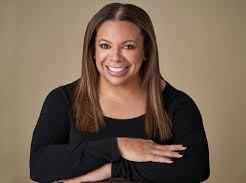 Read the Interview: Born Loving: A Conversation on Identity and Prejudice with Marra B. Gad
Read the Interview: Born Loving: A Conversation on Identity and Prejudice with Marra B. Gad



